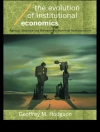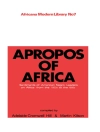Contingent Citizens features fourteen essays that track changes in the ways Americans have perceived the Latter-day Saints since the 1830s. From presidential politics, to political violence, to the definition of marriage, to the meaning of sexual equality—the editors and contributors place Mormons in larger American histories of territorial expansion, religious mission, Constitutional interpretation, and state formation. These essays also show that the political support of the Latter-day Saints has proven, at critical junctures, valuable to other political groups. The willingness of Americans to accept Latter-day Saints as full participants in the United States political system has ranged over time and been impelled by political expediency, granting Mormons in the United States an ambiguous status, contingent on changing political needs and perceptions.
Contributors: Matthew C. Godfrey, Church History Library; Amy S. Greenberg, Penn State University; J. B. Haws, Brigham Young University; Adam Jortner, Auburn University; Matthew Mason, Brigham Young University; Patrick Q. Mason, Claremont Graduate University; Benjamin E. Park, Sam Houston State University; Thomas Richards, Jr., Springside Chestnut Hill Academy; Natalie Rose, Michigan State University; Stephen Eliot Smith, University of Otago; Rachel St. John, University of California Davis
Cuprins
Introduction: Not Exceptional, Typical, or Americanized: The Latter-day Saint Experience with American Politics
Part I: Authority and Mobilization
1. ‘Some Little Necromancy’: Politics, Religion, and the Mormons, 1829-1838
2. ‘Many Think This Is a Hoax’: The Newspaper Response to Joseph Smith’s 1844 Presidential Campagin
3. Precarious Protestant Democracy: Mormon and Catholic Conceptions of Democratic Rule in the 1840s
4. ‘The Woman’s Movement Has Discovered a New Enemy—the Mormon Church’: Church Mobilization against the ERA and the NOW’s Countermobilization in Utah
Part II: Power and Sovereignty
5. ‘The Way of the Transgressor is Hard’: The Black Hawk and Mormon Wars in the Construction of Illinois Political Culture
6. ‘Like a Swarm of Locusts’: Perceptions of Mormon Geopolitical Power in a Non-US West, 1844-1848
7. ‘In the Style of an Independent Soverign’: Mid Nineteenth-Century Mormom Martial Law Proclamations in American Political Culture
8. Political Perceptions of Mormon Polygamy and the Struggle for Utah Statehood, 1847-1896
9. A Snake in the Sugar: Magazines, the Hardwick Committee, and the Utah-Idaho Sugar Company, 1910-1911
Part III: Unity and Nationalism
10. ‘Rather Than Recognize This Wretched Imposture’: Edward Everett, Rational Religion, and the Territory of Utah/Deseret
11. Ambiguous Allegiances and Divided Sovereignty: Mormons and Other Uncertain Americans in Nineteenth-Century North America
12. Mormons at Midcentury: ‘Crushed Politically, Curtailed Economically, ‘ but Winning ‘Universal Respect for Their Devotion and Achievements’
13. The Historic Conflicts of Our Time: Ezra Taft Benson and Twentieth-Century Media Representations of Latter-day Saints
Despre autor
Spencer W. Mc Bride is Historian and Documentary Editor at the Joseph Smith Papers, and is author of Pulpit and Nation. Follow him on X @Spencer WMc Bride.Brent M. Rogers is Associate Managing Historian with the Joseph Smith Papers, and the author of Unpopular Sovereignty. Follow him on X @brentrogers2121.Keith A. Erekson is an author, teacher, and public historian who serves as director of the Church History Library. Follow him @Keith AErekson.












